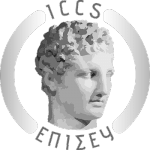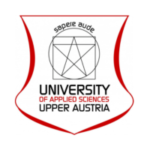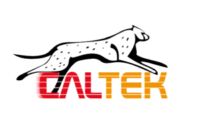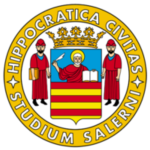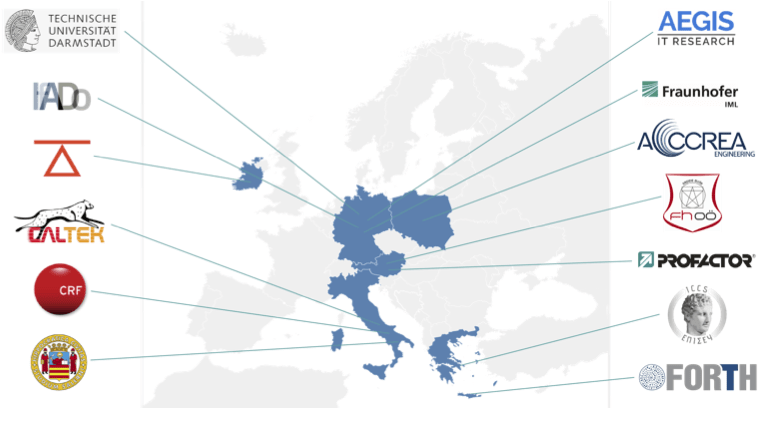
The consortium is comprised of a balanced blend of academic & research organizations (FHOOE, FORTH, ICCS, IFADO, IML, PRO, TUD, UNISA), one of the largest European automotive manufacturers (CRF), three very successful SMEs with significant commercial expertise in engineering and IT (ACCREA, AEGIS, CALTEK) and a legal consultancy service provider (EUN).

INSTITUTE OF COMMUNICATION & COMPUTER SYSTEMS (ICCS)
The Institute of Communication and Computer Systems is the ranking research institute on communications and computers in Greece. ICCS is affiliated with the National Technical University of Athens.
ICCS is a non-profit Academic Research Body established in 1989 by the Ministry of Education in order to carry research and development activities in the fields of all diverse aspects of telecommunications, computer systems and techniques. In FELICE the group of computer vision and machine learning of ICCS is involved. This group applies research in (i) computer vision and vision-based perception, (ii) Computer Vision with emphasis on 3D processing to create precise 3D models for enhance interactivity, (iii) Photogrammetry with emphasis on 3D/4D reconstruction (4D involves 3D geometry plus the time) using virtual and augmented reality techniques, (iv) Image Processing & Analysis, (v) deep Machine Learning including Convolutional Neural Networks, Long Short-Term Memory Networks, Recurrent Deep Learning Structures, Deep Auto- encoders, Deep Belief Networks, (vi) Facial Expression Recognition, (vii) Spatio-temporal Event Detection, (viii) human behavioural recognition, (ix) Pattern Recognition, (x) Sparse Graph Approximation, Clustering (xi) Riemannian Manifold Modelling, (xii) Principal Component Analogies and Dimensionality Reduction, (xiii) Nearest Neighbour Search and Vector Quantization and (xiv) Hyper-spectral, multi-spectral and ther- mal (i.e., non-RGB) image analysis.
The personnel of group of the ICCS consists of six faculty members expert in the above mentioned research domains, three post doc researchers of high experience in the respective research field, seven PhD candidates pursuing their doctoral theses in group main activities and three technical staff members. The groups has participated in numerous research projects funded both at European and national level (Robo Spect, SCOVIS, PHOOTONICS, HYDROPTICS, Panoptis, Inachus).
ICCS will coordinate the project and lead WP4 on perception mechanisms. It will be also involved in activities related to defining and developing the open, interoperable and secure IoT framework that FELICE will operate on. ICCS will also contribute to the requirements (WP2), System baseline technologies and enablers (WP3), Cognitive robotics and adaptive workstations(WP5), Integration, pilot implementation and evaluation (WP8), and to the dissemination and exploitation of the project results (WP9).
University of Applied Sciences Upper Austria
Being one of the strongest universities of applied sciences in terms of research in the German-speaking world, the University of Applied Sciences Upper Austria (FH OOE) is a leader in its field. It offers 68 internationally recognized academic degree programmes in four faculties at four campuses: Informatics, Communication & Media (Hagenberg), Medical Engineering & Applied Social Sciences (Linz), Business & Management (Steyr), and Engineering (Wels).
FH OOE focuses on application-oriented and innovative research in 17 thematic areas with partners from business to society. Enterprises with scarce personnel resources or limited funds available for their own research and development activities (small and medium-sized enterprises) are addressed on the one hand, while solutions are being developed for enterprises in need of support in specialized fields (e.g. in the form of special devices) on the other.
Moreover, FH OOE also provides associations and institutions, particularly in the social sector, with the innovative products and processes they require. In 2019 FH OOE conducted 546 R&D projects, ranging from small single projects for enterprises, multi-annual projects that are financially supported by public authorities up to long-term partnerships in joint research centres, located at our schools. It participated, resp. participates in 12 FP7 projects and 4 H2020 projects as beneficiary, coordinating, resp. having coordinated seven of them. Furthermore, in 2019 the University of Applied Sciences Upper Austria participated in more than 50 other EU-projects funded through EFRE-INTERREG, EFRE-Regio13, EFRE-IWB2020, SEE, CEE and other European-funded activities such as JTI, ERA-Net, ERA-Net+, JPI and EUREKA as well as international projects funded by national funding agencies such as the Austrian Research Promotion Agency and the Austrian Science Fund.
FH OOE highly prioritizes interdisciplinary research and development. The combination of different re- search fields of economics, technology and social sciences results in solutions that are even closer to users’ needs and give economy and society the decisive lead. FHOOE has structured its scientific and engineering activities in six centers of excellences which facilitate exchange of knowledge and collaboration between the different campuses.
The Center of Excellence for Smart Production (CoE-SP) has a staff of 25 scientific experts, which cover the fields of collaborative robotics (Roman Froschauer, Georg Hackenberg) and AI (Stefan Wagner, An- dreas Beham). The CoE-SP is accompanied by a strategic board with additional experts in AI (Alois Zoitl), production (Sophie Parragh) and company CEOs. In addition to the high scientific record of the key re- searcher and the accompanying strategic board the CoE-SP and hence the FH OOE has a high experience in comprehensive research projects with international partners and merging research fields like AI and robotics.
FHOOE will lead work package WP7 “AI for predictive models of human behavior and production evolu- tion”. In addition to task leads in WP7, FHOOE leads tasks T1.2 “Quality assurance and Risk management” as well as T6.2 “Quality assurance in digital twin modeling”. FHOOE contributes to other work packages, especially WP5 “Cognitive robotics and adaptive workstations” and WP8 “Integration, pilot implementation and evaluation”.
Foundation for Research and Technology-Hellas
FORTH is a public research center comprising eight Research Institutes that conduct interdisciplinary re- search and development (R&D) activities in areas of major scientific, societal and economic interest. FORTH has established itself as a renowned and highly competitive research organisation. According to the European research rankings (CORDIS data), it has been consistently ranked (2007-present) in the top 100 research and academic institutions in the EU. FORTH participates in the present proposal with its Institute of Computer Science (ICS). Besides its pioneering contributions in the sector of Information and Telecommunications Technologies in Greece, FORTH cooperates, in the framework of European and international collaborative R&D programmes, with universities, research centres and other organisations at national and international level, thus contributing to the exchange of scientific ideas and the creation and transfer of new technolo- gies. The research directions at FORTH take into consideration the state-of-the-art, international trends, research and technological challenges worldwide, as well as the national needs of the public and private sectors. FORTH represents Greece in the European Research Consortium for Informatics and Mathematics (ERCIM), an organization dedicated to the advancement of European research and development in the ar- eas of information technology and applied mathematics. FORTH has adopted an evolving strategy towards promoting the commercial exploitation of R&D results by providing services, licensing specific products to industrial partners, contracting with industrial partners to jointly develop new products, and participating in start-up / spin-off companies and joint ventures. FORTH has played a major role in the development of the Science and Technology Park of Crete (STEP-C).
From a research and development (R&D) perspective on-going efforts focus on:
- information systems; data and knowledge-based systems; information retrieval, including content-based approaches; image processing and pattern recognition; computer vision;
- sensor technologies; robotics; machine learning; digital communications; network management; com- puter systems and networks; computer architectures; microsystems;
- VLSI design; computer aided design; human-computer interaction; virtual reality; universal access and usability; information and communication technologies in healthcare;
- assistive technologies for people with disabilities; Web systems and technologies; embedded systems; and GRID and large-scale computing.
Regarding innovation and technology transfer activities, FORTH has established a separate unit called PRAXI. The PRAXI network is offering its technology transfer, high added value innovation support and internationalization/partnering services throughout Greece by operating offices in three large cities of the country and having established strategic partnerships with key local, regional and national stakeholders.
FORTH leads tasks T3.2 “Security & Privacy enabling mechanisms”, T4.2 “Scene perception” and T5.4 “Cognition for Human-robot collaboration fluency”. FORTH participates in FELICE with the Computational Vision and Robotics Laboratory (CVRL) and the Distributed Computing Systems and Cybersecurity Laboratory (DiSCS), both part of FORTH’s Institute of Computer Science.
Centro Ricerche FIAT (CRF)
Centro Ricerche Fiat (CRF), founded in 1978, has the mission to develop and transfer innovative products, processes and methodologies in order to improve the competitiveness of the products of the Fiat Group. Also through the cooperation with a pan-European and increasingly global network of more than 1700 partners from industry and academia, CRF conducts collaborative research initiatives at national and international lev- els in partnership with all key public and private stakeholders concerned with Sustainable Mobility, targeting specifically the industrial exploitation of research. The CRF research activities imply strategic competences not only in the field of automotive engineering, but also in the fields of manufacturing, advanced materials, ICT and electronics, as well as a wide range of state-of-the-art laboratories and extensive test facilities, in- cluding EMC chambers and a dynamic driving simulator with immersive virtual reality. CRF participates with a leading role in the European Green Car Initiative and Factories of the Future, the Public Private Part- nerships conceived by the European Commission in 2009 to focus public and private research on issues of direct and significant relevance to the Europe with regard to the competitiveness of industry and employ- ment. Within this context, CRF is also involved in several key European Technology Platforms including: ERTRAC (road transport), EPOSS (smart systems), EUMAT (materials), MANUFU-TURE (manufacturing).
CRF participates at the project as the end-user in manufacturing industry and as player of Real-like experi- ments and system evaluation. CRF will be the responsible for the FCA group use case and the testing and validation phase in CRF laboratories based on the real Plant environment. CRF will have an active role in all tasks related to the specification definition and it will be involved for the communication strategy. More specifically, CRF will lead the pilot implementation and evaluation (WP8) work package. Furthermore, CRF will lead the tasks innovation management (T1.4) as well as the exploitation & long-term sustainability (T9.2).
FORSCHUNGSGESELLSCHAFT FUR ARBEITSPHYSIOLOGIE UND ARBEITSSCHUTZ EV (IFADO)
The IFADO Leibniz Research Centre for Working Environment and Human Factors, is a legal entity of the Leibniz Society, based in Dortmund. It conducts multidisciplinary, application-oriented basic research, investigating the demands, potentials and risks of modern work life from various perspectives ranging from the individual cell to the entire socio-technical system. The overarching goal of research is to provide benefit and welfare to the working individual and the society. Both potentials and risks of modern work environments are conceptually and empirically approached in order to promote safety, health and sustainable work. In the field of life sciences, IFADO uses innovative technologies, which are often tailored, optimized and, where appropriate, patented. The research results are used to develop design criteria for healthy and efficient working conditions and to put them into practice.
In addition, recommendations are made to committees and decision makers both at the national and interna- tional level that are involved in regulation and standardization of toxicological, ergonomic or occupational questions. This includes the determination of limit values for hazardous substances and working materials as well as ergonomic guidelines. IFADO transfers knowledge via several channels, including trainings, lec- tures, handouts, and consulting tools. Furthermore, IfADo is a Collaborating Centre for Occupational Health of the WHO.
The research agenda of the Department of Ergonomics focuses on human-centred analysis, design and eval- uation of work processes and environments. Empirical research approaches, both in the field and in the laboratory are utilized in order to investigate interdependencies and effects of work environments on human users in general and different aspects, effects and possible forms of human-machine interaction in particular. Research objectives consist in knowledge-based support of innovation design that adapts to the characteris- tics and needs of the human user. This approach can prospectively ensure better performance of the designed -joint- human-technology system, optimized workload, and enhanced safety and health for the users.
With regard to the current proposal, IfADo has many years of research experience in the field of cognitive ergonomics, and more specifically in the design of cognitive and sensorimotor assistance/decision aiding systems (see section of relevant projects). In addition, the IfADo has extensive experience in the devel- opment, testing and evaluation of intervention measures to promote OSH-related individual competences in the working context and has been active in various respective research projects (e.g. PFIFF, PFIFF2, INNOKAT).
In this project IfADo leads work package WP2 “FELICE framework formalization”. In addition to task leads in WP2, IfADo leads task 8.1 “Use cases and pilot evaluation strategy”.
AEGIS IT Research UG (AEGIS)
AEGIS IT RESEARCH GmbH is a research and development company based in Germany developing and managing innovative IT solutions for numerous business sectors. It is based on a highly effective professional team consisting of talented researchers and top-class IT experts from all over the world. This team empowers the company with a strong, diverse skillset which helps AEGIS offer innovative products and high-tech business solutions to the market.
AEGIS’ main areas of expertise include Digital Forensic Investigations, adaptive Big Data visualization sys- tems, Geographical Information Systems, secure embedded platforms, access control and network security systems, privacy preserving systems, enterprise web applications and all the lifecycle of IT systems (design, development, deployment, optimization and maintenance).
AEGIS has a long-term involvement in security and data management solutions, offering: (i) Digital foren- sics investigation and security-related situational awareness for the decision makers, (e.g. consultation, col- lection and analysis of digital evidence; analysis of Critical Infrastructures); (ii) AEGIS Advanced Visualiza- tion Toolkit, that has already been operated for digital forensics analysis and investigations (Forensics Visu- alization Toolkit – FVT), and big data advanced visualizations (AVT); (iii) Physical forensics services, that support a post-mortem digital forensics investigation for IT and non-IT cybersecurity experts, including but not limited to basic forensics activities like forensics analysis of physical assets/objects and complementary ones like consultation, and training; (iv) Cyber forensics services, empowered with correlation algorithms and innovative capabilities (e.g. Preconfigured views and Timeline analysis), for almost real-time mitigation actions (e.g. threat-hunting: automatic digital forensics investigation and recommendation/identification of potential threats); (v) Visualization and monitoring tools and services for both historical and real-time Big Data analytics, that include: (a) intuitive and informative mechanisms (based on off-the-self different devel- opment libraries); (b) business-style dashboards; (c) analytical reasoning, which comprises the calculation of indicators for content characterization, grouping and clustering; (d) data representation and transforma- tion (dimensionality reduction of high-dimensional data structures); (e) entailing data structures that can be processed and visualized and (f) interactive and multi-purpose user interfaces (providing different levels of abstraction, tailored for the different categories of user expertise), that allow users to explore and understand textual data and interact with them.
In this project AEGIS leads work package WP3 “System baseline technologies and enablers”. In addition to task leads in WP3 AEGIS leads tasks T2.5 “System architecture and IoT ecosystem specifications” and T8.2 “Integration strategy”.
CAL-TEK Ltd
CAL-TEK is a Limited Liability Company established as Software Company and located in South Italy where a team of skilled designers and smart developers support business creation and carry out research projects. CAL-TEK develops innovative products and solutions by using and integrating multiple enabling methodologies and technologies (such as Modeling & Simulation, Immersive and Interactive Virtual Reality, Smart Augmented Reality, Mixed and Extender Reality, Artificial Intelligence and Serious Games among others). CAL-TEK is also a spin-off company from University of Calabria (from the MSC-LES lab) and works in cooperation with a number of other companies, universities and research institutions worldwide (also supporting the publications of International Conference Proceedings and International Journals Special Issues).
CAL-TEK products and services are used in different sectors, from Industry (with specific Industry 4.0 and Smart Operators products and solutions), to Logistics and Marine Ports (with specific solutions for training in logistics and maritime domain).
CAL-TEK has an extensive knowledge about simulation paradigms, methodologies and applications and is able to handle innovative technologies (i.e. wearable technologies) and paradigms such as simulation based serious games, interoperable simulation, web-based simulation, real time simulation, distributed and parallel simulation, and intelligent agents. Simulation capabilities include also the ability of developing complex, immersive 3D virtual scenarios able to support virtual and constructive simulation and integrating within a common simulation framework both Human-in-the-loop and Hardware-in-the-loop solutions.
CAL-TEK it is involved in many R&D projects both at national and international level. The CAL-TEK team also offers technical consulting services covering a wide range of areas in the field of Modelling and Simulation. As additional activities, CAL-TEK fully supports the organization of different International Conferences in different domains, such as the International Multidisciplinary Modelling & Simulation Multiconference (I3M) and the International conference on Industry 4.0 and Smart Manufacturing (ISM).
In this project CAL-TEK is work package leader of WP6 “Data driven digital twin of production process”, in addition CAL-TEK leads task T8.3 “System integration and deployment”.
Technical University Darmstadt – Institute of Ergonomics & Human Factors
Since its foundation in 1877, TU Darmstadt (TUD) has been characterized by a special pioneering spirit. It is part of our self-image to continuously continue this tradition of innovation. Through outstanding achievements in research, teaching and transfer, TUD open up important scientific fields of the future and continually open up new opportunities for shaping society. This makes TUD Darmstadt with 14 departments and more as 26000 students one of the leading technical universities in Germany with high international visibility and reputation. TU Darmstadt stands for openness and international focus in studies, teaching and research. TU Darmstadt incorporates diverse science cultures to create its characteristic profile. The focus is set on engineering and natural sciences, which cooperate closely with outstanding humanities and social sciences. University cooperates with partners on different levels: strategic partnerships and/or networks.
The Institute of Ergonomics & Human Factors (IAD), founded in 1963, is national and international noted institute. The IAD as part of the department of mechanical engineering of TUD enjoys a worldwide established reputation. One of its main characteristics is their broad subject orientation. Thank to this diversity and our experience for more than 55 years, the institute could always react appropriate to new problems, and influence entrepreneurial and social development through relevant research topics.
The multidisciplinary and international character of the institute warrants for the quality of research on field of ergonomics and human factors. More than 25 researchers of IAD qualify with their degrees in ergonomics, mechanical engineering, industrial engineering & safety, occupational medicine and psychology.
Main competences and research areas are:
- Work Assessment & Workplace Design: The central topic of this research group is the integration of scientific findings into the design of work places and processes. The focus is always on the workplace and the human being in his role as a system member. Also cooperative human-robot interaction (HRI) and communication (HRC), ergonomic risk analysis and management, workplace design; technical assistant systems (Exoskeletons and Robots) on workplaces in industry and service are the research fields.
- Man-Machine- Interfaces & Mobility: The main goal of this research group is to adjust each system to the specific context it is used in and to give the user access to the desired functions considering contextual requirements, e.g. drivers’ workload. Human-centered design approaches are applied in order to ensure usable products or systems which are tailored for the target group and the context of application.
- Human & Organization: The research group has set itself the task of optimally adapting organizational structures and processes to human beings on the one hand, and on the other hand to consider human beings in their role as organizational members and prepare them for organizational changes.
TUD is also involved in two key European Technology Platforms including: ETPIS (deals with occupational health and safety of the workers in industry) and ERTRAC (road transport)
In this project TUD leads work package WP9 “Dissemination, exploitation and long-term sustainability”. In addition to task leads in WP9, TUD also leads task T5.2 “Adaptive workstation for manual assembly”.
University of Salerno
With more than 40.000 students, 17 departments organised in two Campus, the University of Salerno is the second biggest University in Campania and the first University in the south of Italy according to the latest evaluation of the quality of research and education made by the ANVUR, the independent agency designed by the Italian Ministry of Research and Education for evaluating research institutions. The high quality of research and educational services provided by UNISA is confirmed by the position held in the University ranking produced by the “Sole 24 ore” the most important financial newspaper in Italy, 1st place for the Center-South Unviersities, and by the Times Higher Education World University Rankings 2018, 65th among the younger Universities (less than 50 years).
In the project will be involved the research group of the MIVIA laboratory (Intelligent Machine for Video, Image and Audio recognition) of the Department of Information and Electrical engineering and applied Mathematics (DIEM). It is worth to mention that the DIEM is one of the three department of excellence in the Computer Engineering area in Italy according to the last ANVUR evaluation, achieving the maximum score of 100/100.
Belong to the MIVIA lab 9 professors (3 full professors, 2 associate professors and 4 assistant professors), 4 PhD students. All the MIVIA’s researchers belong to the International Association of Pattern Recognition (IAPR) and are active from more than 30 years in the area of machine learning and pattern recognition for text, video, image and audio analysis applied in different big data contexts. MIVIA research Lab is active in the fields of Artificial intelligence, Pattern Recognition and Computer Vision.
Concerning the FELICE research and innovation aspects the most relevant expertise available in the MIVIA lab are related to:
- Cognitive robotics: Application of deep learning approaches for making responsive and autonomous the robot in terms of both the operations and dialogue.
- Intelligent Audio Analysis systems: Application of machine learning and pattern recognition techniques for audio track analysis for event recognition and identification and for speech recognition in human computer interaction (cognitive robotics).
- Intelligent video surveillance systems: innovative techniques for the automatic detection of events of interests from video taken by surveillance cameras deployed in indoor and outdoor environments, with solutions for the reliable detection and tracking of objects moving within the scene, also in difficult situations characterized by multiple occlusions, shadows and presence of reflecting floorings;
- Crowd analysis: estimating the number of persons and objects of interest which are present in an area framed by a surveillance camera, with the aim of detecting dangerous situations or providing overall statistics about the scene;
- Behaviour analysis and interpretation: techniques for the automatic analysis of the behaviour of the objects moving into the scene taken from a camera with the aim of detecting anomalous situations or patterns of common behaviours.
- Natural Language Processing and Understanding: the expertise are in the field of semantic text analy- sis and annotation using machine learning techniques for text categorization, named entity recognition and intent detection as well as to sentiment analysis, text polarity detection. The research in this field also deals with the development of contextual conversational agents able to interact with the user, under- standing the intent of its queries and also considering contextual data like user profiles and the history of conversation.
UNISA will mainly contribute to WP3, WP4, and WP5. UNISA leads tasks T3.1 “Baseline technologies & tools” as well as T4.4 “Speech and gesture analysis” concerned with the analysis and development of state of the art solutions for speech and gesture recognition for provide commands to the robot and the workstation. In WP5 will contribute to the development of the cognitive robot aspects, using the results coming from WP4.
Fraunhofer Institute for Material Flow and Logistics (IML)
The Fraunhofer Institute for Material Flow and Logistics (IML) has been tackling logistic tasks, mainly the process, hardware and software development for internal and external logistics. The IML turnover consists of more than 50% of industrial contracts for software development in different logistical applications, supply chain consulting and R&D of novel logistical solutions. Knowledge acquired from funded projects is directly transferred in industrial contracts. So made-to-measure arranged teams create cross-industry and customer- specific solutions in the area of materials handling, warehouse management, supply chain management, simulation supported business and system planning and also traffic systems, closed loop economy, resources logistics, building logistics and e-business. IML is said to be first address for all questions with respect to holistic logistics, the employees work on all fields of internal and external logistics. At the Institute, founded in 1981, there are at the moment 200 employees as well as 250 post-graduates, supported by colleagues in workshops, laboratories and service areas.
In logistics, interaction between humans and machines is an important component of today’s systems. At Fraunhofer IML, we derive the fundamental functions of the new human-machine interaction in the areas of adaptive user interfaces and systems, workplace design and context-related information visualization and then continue to develop them. In our different laboratories, we work on user studies for human-technology interaction to find out and evaluate new types of interaction – always in strong alignment with typical in- dustrial use cases, which leads to fast deployment in real industrial scenarios. Furthermore, we have the expertise to design, develop and integrate new technologies from the idea to small series for deployment in the field of production and warehouse logistics. In this way, we investigate multiple modalities of interaction with many different types of interaction technologies to find adequate forms for the specific parts of /and processes. The Fraunhofer IML focuses on using AI on resource-restricted systems e.g. mobile robots to do the path planning, object classification and semantic mapping as well as adjusting to individual needs.
More specifically, the roles in the project are:
- Gathering requirements for different types of users (collaborating, co-existence, etc.), various interaction modalities (speech, gesture, etc.) and process specific tasks (assembling, documenting, etc.) as well as general social aspects e.g. proxemics.
- Identifying ergonomics aspects (physical as well as cognitive ergonomics) during the interaction pro- cesses through research as well as pre user-studies with a motion capturing system and user experience questionnaires.
- Gathering requirements on and collection of sensor data used for predictive maintenance in order to improve the resilience of the assembly line.
- Monitoring human parameters and process steps by equipping the user with a variety of sensors to mon- itor physiological data e.g. heartrate, EDA measurements, etc. and using the motion capturing system to verify ergonomic movements.
- Defining requirements and a concept for a safety control system, which takes into account safety-critical aspects as well as social critical aspects to guarantee user acceptance of the system later on.
- Developing of options to guide the human worker through the manual assembly task while considering different types of context (users abilities, users state – awareness, etc.) e.g. using AR glasses.
- Developing behaviors for cognitive and social robots in general as well as focusing on the use-case and the different users.
- Updating human models which take into account the users’ status (including mental workload and phys- ical ergonomics). Deriving suitable robots’ behaviors and information representation.
- AnnotatecollectedsensordataandadoptMLmodelsforpredictivemaintenancetoimprovetheresilience of the assembly line.
- Apply reinforcement learning approaches to adjust global parameters of the assembly line based on data provided by informative models.
In this project IML leads tasks T7.2 “Resilient assembly line” and T9.4 “Liasing with DIHs” and contributes to WP2 “FELICE framework formalization”, WP4 “Perception mechanisms”, WP5 “Cognitive robotics and adaptive workstations”, and WP7 “AI for predictive models of human behavior and production evolution”.
ACC ACCREA Bartlomiej Stanczyk
ACCREA Engineering (ACC) was established in 2007 as a spin-off company of the Technical University of Munich (TUM), founded by Bartlomiej Stanczyk, former research assistant of the Institute of Automatic Control Engineering. ACCREA is active in: Custom designs and feasibility studies of mechatronic sys- tems, i.e. combining mechanical, electronic and control engineering); Manufacturing & rapid prototyping of robotic arms, mobile platforms and other types of robotic systems; Research and development services in robotics, control, teleoperation and haptics; Consulting services in control and systems engineering; Design and expertise of robotic systems and Real-time control and embedded software development.
ACCREA was appointed to design and manufacture a number of anthropomorphic robotic arms, a robotic neck with 4 degrees of freedom, to manufacture of the TUM mobile platform, and to integrate the arms/platform/head/control systems. ACCREA designed also a series of lightweight robotic arms with real time control software for Technical University of Lublin. ACCREA was a key hardware developer in a number of EU-funded R&D robotic projects IURO, MOBOT, ReMeDi, RAMCIP:
ACCREA combines research background in control and robotics with industrial experience in computer aided design and manufacturing; has in-depth knowledge of system design and requirement engineering, in particular modelling and simulation, system identification, and robust controller design methodologies; inte- grates mechanical, electronic and embedded control design within one company. ACCREA’s team consists of 15 highly qualified development engineers: system designers, roboticists, electronic engineers, mechanical engineers and 5 skilled technicians responsible for both manual and CNC manufacturing. ACCREA disposes over a cutting-edge technology production workshop equipped with modern 3D printers (2016&2017), CNC router and lathe (2017), laser cutter (2018), CNC plotter and other machines. This way the prototyping and production cycles are minimized.
ACCREA will be carrying all hardware related R&D tasks in WP5 (T5.1). Using the design, prototyping and production facilities, the robot prototypes and test beds will be built at ACCREA premises and made available to the Consortium so that the necessary software and commercial tasks will be accomplished. The in-house availability of the production facilities guarantees short design circles and flexibility in the modifications and adjustments of the hardware. ACCREA will be strongly involved in the system & safety design, certification and commercialization activates of the Consortium.
PROFACTOR GmbH
PROFACTOR is an Austrian research company located in Steyr and focuses on developing new methods for integrated production technologies. The technological focus is on robotics, machine vision, functional surface and nanostructures. About 73 scientists of various disciplines conduct research to improve the com- petitiveness of the production industry and to strengthen the Austrian and European industry. PROFACTOR is conducting the whole range from basic research to applied research. By establishing strategic partnerships with industrial partners, PROFACTOR focuses on closing the innovation gap between research results and market introduction. The collaboration with industry is an essential task for PRO and by collaborating with approx. 400 companies, more than 1240 projects were successfully established and finished since its foun- dation in 1995. PROFACTOR’s Robotics and Autonomous System (RAS) research focuses on innovative technology solutions and systems whose autonomous decision-making power is characterized by increasing complexity. The goal is to enable machines and systems to adapt their assistance as autonomously as pos- sible, according to the situation and in real time. The acceptance of such solutions by the human operator is also taken into account – regardless of the obligatory safety issues. The current research focuses of RAS team at Profactor includes: Cooperative Robotics, Situated Assistance Decentralized and distributed system architectures, Automatic Process Planning and New Action Patterns and Interaction Modalities. Within the framework of several EU projects (SymbioTIC, DARWIN) and national projects (MMAssist, HoliSafeMRK, PlugBot) RAS has acquired extensive experience in human- robot interactive technologies and architecture design of easily programming robots for complex tasks.
The Robotics and Assistive Systems department at PRO comprises of employees from the fields such as mathematics, computer science, mechatronics, physics and mechanical engineering. This group has gathered extensive experience in machine vision (2D and 3D), autonomous robot systems, system integration and human-robot interaction.
In this project, PRO leads work package WP5 “Cognitive robotics and adaptive workstations” and task T5.3 “Task Execution and verification”.
Eunomia LIMITED
EUNOMIA is a consultancy firm, located in Cork (Ireland), specialised in the provision of business and legal consultancy services information technology (IT), including, privacy & data protection (GDPR). EU- NOMIA team is composed of experts with an international background and professional experience gained both in academia and in the private sector, maintaining an extensive network in the ICT domain. All team members have been closely collaborating with interdisciplinary teams and they are well aware of how to approach problems from different standpoints in order to tackle them efficiently. This holds true when, for example, internal security and privacy tests reveal vulnerabilities that may essentially entail reorganizing internal workflows. EUNOMIA experts are in the position to support an organization in such a situation in understanding problems and technical faults more accurately, utilising data-based decision making in an appropriate manner and to provide guidance for managing data and privacy risks effectively and cost effi- ciently. EUNOMIA acknowledges the particular traits of each stakeholder (e.g. SME, large corporations) and customizes the provisioning of its services accordingly, aiming to keep the quality of its services consis- tently high. EUNOMIA -and EUNOMIA team members- have a growth mindset, making conscious efforts towards deepening the knowledge in the field of law, aiming to amplify the understanding of the associated legal challenges raised by ICT developments, such as AI and 5G networks. Overall, EUNOMIA’s vision is to set long term goals and to focus on the concrete steps needed to materialize them.
EUNOMIA will contribute mainly to the analysis of regulatory legislation issues related to ethics and the privacy of data that will be collected in FELICE. In particular EUNOMIA will be involved in task T1.3 “Ethical and privacy issues”.

